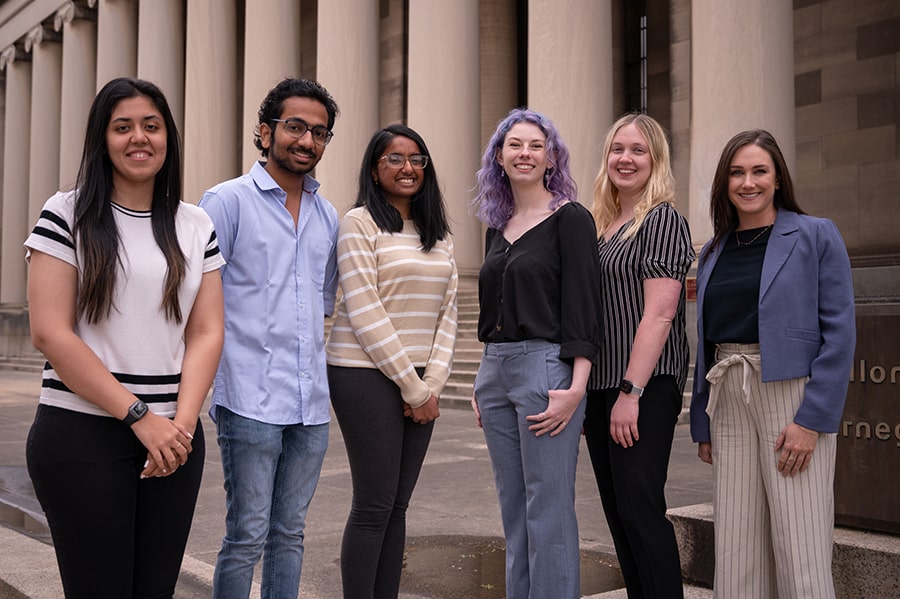MS-DAS Students Compute Clinical Suggestions
Carnegie Mellon University graduate students Ashritha Eswaran, Janvi Mirchandani and Yash Dugar analyzed hospital discharge records of patients who received medical devices for advanced circulatory support.
"I hadn't worked in healthcare before this project," Eswaran said. "Being able to work with anonymized patient information was really interesting to me."
The work was for their capstone course in the Master of Science in Data Analytics for Science (MS-DAS), a yearlong program that provides students from a range of backgrounds with the skills needed to analyze scientific data. MS-DAS is a partnership between the Mellon College of Science, the Department of Statistics & Data Science and the Pittsburgh Supercomputing Center
The three worked with LivaNova, a UK-based company (with U.S. offices in Houston; Pittsburgh; and Arvada, Colorado) that produces medical devices that support the head and heart conditions. Carnegie Mellon alumnae Kayla Frisoli (DC 2016, 2020) and Cheyenne Ehman (MCS 2020, DC 2021), who are technical leads at LivaNova, were excited to work with students from their alma mater.
"As a Ph.D. student at CMU, I was heavily involved in corporate capstones for the Department of Statistics & Data Science," Frisoli said. "The programs can be incredibly mutually beneficial for both the university and companies. I even met Cheyenne while serving as the Ph.D. advisor for her undergraduate capstone experience, which helped me recruit her for LivaNova! We both see the benefits of the program and enjoy working with students on both technical and business skills."
With the mentorship of Frisoli and Ehman and help from Andrew Briggs, who leads LivaNova's Competitive Intelligence and Data Analytics Team, Eswaran, Mirchandani and Dugar analyzed how circulatory system support products are used in practice by hospitals.
"You have so much information," Dugar said. "You have all the different procedures, diagnoses, outcomes, and even some patient-level information like gender and race. It's a really nice experience to understand how we can better utilize this large amount of data to understand the clinical patient journey."
The students said that the LivaNova team treated the experience as a collaboration and offered valuable insight during weekly meetings.
"We provide LivaNova with a weekly progress summary and try to understand the deeper meaning behind our findings" Mirchandani said. "All of their feedback has helped us in better understanding how to look at the data from different angles in the healthcare field."
The students learned more than just data analysis skills; they have developed their communication skills as well.
"Throughout the project, Ash, Janvi and Yash have done a great job of visualizing their analysis and communicating findings to less technical audiences," Briggs said. "We have also been very impressed at the students' ability to understand our extremely complex products and how they are utilized in various clinical situations."
